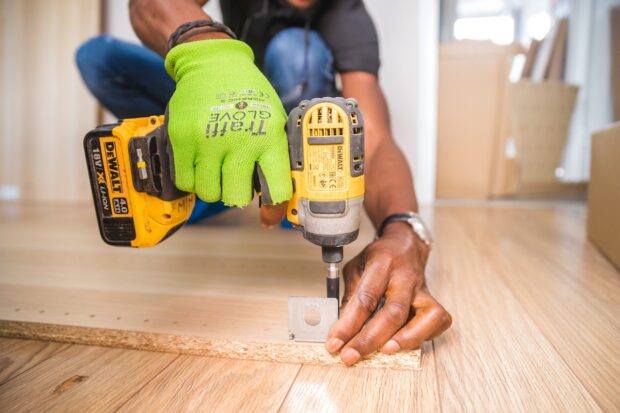Construction projects are very popular and there is always an opportunity to start a business in this industry. Some of the activities that a construction business may undertake include building new structures, creating building designs, maintenance, repairs and improvements to existing structures.
However, starting a construction business isn’t a walk in the park. There are various challenges and hurdles you’re likely to face. This includes labor and union costs and regulations, material costs, state and government regulations, and a shortage of skilled contractors/workers.
Construction business is capital intensive and this can also be a real hurdle to getting started.
Furthermore, stiff competition from existing businesses, especially well established outfits, can be a major challenge when you are starting out.
How do you overcome all these challenges to create a successful construction business? Here are some tips to help you start your construction business.

- Do market research
Is a construction business a viable option in your local area? This should be your starting point.
It might be challenging to get a foothold in the construction industry if the market is saturated and your potential customers are satisfied with the services from the existing companies.
So, before you think of starting a construction business, find out if there are other construction businesses operating in your area. Some of the key points to note down when conducting market research include:
- Your competitors’ area of specialization
- Reputation
- Cost of their services
- Customer base
By doing this, you’re trying to identify a gap in the market. Once you identify this niche, you can tailor your construction business offerings accordingly. You can also research the likes of this Conjoint analysis example, to see if this is a method of market research that would benefit your business and how it operates.
- Create a business plan
This is the second most critical part of starting your construction business, and any type of business.
Creating a business plan will give you a 30% more chance of growth in your industry as it enables you to put your company’s vision on paper.
Why you need a business plan for your construction business
To examine the feasibility of your venture
A business plan involves researching your market, competitors, potential customers, and other factors that will affect your business. It acts as a feasibility study for the growth and success of your new venture.
A business plan assesses whether your ideas are workable or not. It will help you to decide whether to proceed with your business venture or change the direction and tweak your value proposition.
To determine your financial needs
You will need some capital to start your new venture, but how much do you need?
A business plan helps you determine the exact amount of capital needed for your construction business. It also lays out how you’re going to use the capital; which helps you to focus your spending.
To attract investors
If you plan on securing capital and funds from investors, a business plan might help you find the right people to finance your construction business.
Whenever you seek financial aid from investors the first thing they’ll ask for is your business plan. They’ll review the plan and decide if your construction business is a viable investment option. The plan helps answer investors questions like;
- What are your financial projections?
- Is there a need for construction services in your area?
- What is your exit strategy?
To discover new opportunities
The process of white-boarding, brainstorming, and creative interviewing, helps you uncover new opportunities for your business.
The process of creating a business plan will clarify your ideas, unearth hidden opportunities, and allow you to crystallize your vision.
- Get licenses and permits
You must ensure your construction business operates legally, at state and federal levels. This includes registering your business, for example, if it is a UK-based business, then you will need to register your business to appear on the Companies House search service.
You may need more than one permit or license to legalize your business. This is because the construction business entails a wide range of activities that require special permits.
For instance, if you’ll be operating heavy equipment and machinery, you’ll require a special license.
Additionally, licensing requirements will vary from one state to another. So, before you start your construction business, check the requirements in your area.
If you don’t get the right permits and licenses, your business will be staring at penalties and fines. You also risk closure.
- Insure your construction business
Construction jobs pose significant risks and dangers to you and your employees. Therefore, getting insurance for your business ensures you are all covered in case of injury.
Some states have minimum insurance requirements for construction businesses. This includes having a workers’ compensation policy and general liability insurance.
General liability insurance protects your business against accidents, worksite injuries, and other mishaps that could otherwise result in legal liability issues or hefty bills.
Workers’ compensation policy covers the medical bills and expenses in case your employees get hurt at work.
Other types of insurances you might need for your construction business include;
- Property insurance; This will cover your business property including office buildings from incidents like theft or property damage.
- Vehicle insurance: this covers your moving machinery and equipment like trucks.
- Unemployment insurance: this protects your employees in case they lose jobs through layoffs, company closure, or other unplanned circumstances.
- Disability insurance: this will cover your employees in the event they sustain injuries on the job that lead to long-term disabilities.
- Secure funding
If you have a big pile of money saved to start a construction business, you may want to skip this. Otherwise, you will need help funding your construction business.
You need financing to rent or purchase equipment and materials, pay your employees, take out insurance policies, acquire licences and permits, rent office space, and fund a marketing campaign. The list of tasks requiring financing is endless, and your savings might not be enough.
The good news is that there are a variety of funding options for small business owners. This includes:
- Small business loans (SBA loans)
- Purchase order financing
- Working capital loans
- Equipment loan
- Vendor financing
However, before you get any financing for your construction business, research the various types of loans. Look at the terms and conditions, interests rates, and other important information that might affect your business in the long run.
- Develop a marketing strategy
Marketing is the backbone of every business. If you don’t create an effective marketing strategy to sell yourself and your services to your potential customers, your business is likely to fail.
There are various techniques to help you market your business. And today, technology has made it easier to reach even more people/customers.
Create an online presence for your construction business. For this, you’ll want to create a website and social media channels for your business.
Bonus tip
One of the most effective strategies in the construction industry is word of mouth. Unfortunately, the construction industry is rife with unscrupulous players.When you do quality and honest work, your customers will happily refer to others and your reputation will grow in your area.
Last word
The first step is always the hardest. But once you decide to make that first move, everything starts falling into place. If you’ve been thinking of starting a construction business, but wondering where to start, we hope you now understand some of what you will require.
Start with market research to identify a business gap. Draft a business plan highlighting your strategies, goals, missions, and everything your business entails. Line up your financing, insurance, licences and permits, and you will be on your way.










